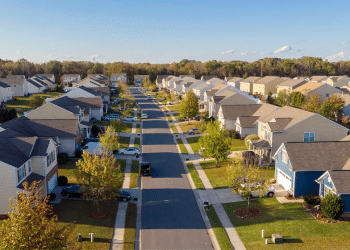Table of Contents

Do you have a consider mortgage payment to clear before you can the place you live in your own home? If yes, then you’ve come to the right place!
Your eagerness to clear the payments can be due to the constant psychological pressure of debt looming over your head, or maybe you want to increase your monthly cash flow. Paying off your home mortgage can help you achieve financial stability. It can also scrape the increasing interest payments, saving you money in the long run. You will be able to circulate more money in your daily routine and save money in the long term for future financial goals.
While these reasons hold solid credibility, the mere idea of paying debt before time can be daunting in itself. After all, we are talking about paying thousands of dollars sooner than they’re due. Unless you just won a lottery or some dead relative left you a fortune, it is impossible to pay off debt on fewer, larger chunks. However, there are some ways you can reduce the period, save money on interest, and increase equity. Some of the methods are:
1. Adopt the HELOC strategy
House Equity Line of Credit or HELOC is a type of loan in which the lender lends the amount equal to the value of the mortgage payment and the percentage they can allow you to borrow. More people are now borrowing HELOC to pay off mortgage payments because it is convenient and has benefits. One of these benefits is that it allows you to save thousands of dollars of interest you will have to pay banks and other companies. HELOC will enable you to shift towards a lower interest rate and gives you the advantage of reducing the monthly mortgage. As the interest payments reduce, you will be able to pay off your debt sooner.
2. Make extra payments
You can save money on interest if you simply reduce your loan term by making extra house payments. However, before implementing this strategy, ensure that your lender doesn’t charge any penalty for additional payments. Once you confirm that there are no extra penalties, you can adopt this strategy.
So, for example, if you have a 30-year long mortgage of $220,000 with an interest rate of 4%, by making an extra payment of only $1,050 in every quarter, you can pay off the mortgage early. This way, you will cut down 11 years of mortgage and save money without paying excessive interest.
Also, it would be wise to evaluate your financial position. Taking out more money every month would mean lesser cash for you to run your monthly expenses.
3. Sign up for a biweekly plan
Signing up for a biweekly plan can help you pay off your debt faster. For example, if you pay 1000 dollars a month, you can switch to a biweekly plan and start paying $500 every two weeks. While it won’t impact your pocket, it will add an extra payment into your 12-month payment plan. By choosing to pay biweekly, you will pay 13 payments in a year instead of 12 and shave off a couple of payments off your mortgage in the long run.
4. Refinance your mortgage into a short-term loan
If you have a 20-year mortgage, you can refinance it to a 10-year loan. It will take you through the mortgage process faster and save you a lot of money on interest rates. If you do the math, your payments for ten years are not double of your 20-year plan. You will pay lesser in interest and save a lot of money. Therefore, pick up the mortgage payoff calculator and start refinancing your budget accordingly. However, if you conclude that cutting the years down to half is not feasible, add a couple of extra years instead of the total duration.
5. Allocate extra funds toward your mortgage
You may secure extra funds in the form of a bonus or tax returns. If you use some percentage or all of that money in making additional payments for your mortgage, you can pay it off a lot early. Similarly, suppose you secure extra cash flow. In that case, you can balance out your budget and spend the extra cash on additional payments.
Paying more every month is a surefire way to pay off early. For example, if your pay was $5,000 and you get a 5% raise, you will get a total of $5,250 every month. Instead of spending that 5% on your monthly home expenses, include it in your mortgage payments. This method is most feasible when you are comfortably meeting all the basic needs.
6. Downsize
Needs change over time, and you might realize that the living space you currently have is no longer necessary. In such cases, downsizing can be a drastic yet very beneficial step. If you are genuinely determined to pay off your mortgage faster, consider a smaller, less expensive living option. With the profit you make from selling your current property, you might be able to pay the mortgage for the new living space altogether. Even if you cannot pay in full, you will still have to deal with a smaller mortgage, reducing your debt and saving money lost on interest payments.
However, if you choose this route, ensure that the next home you purchase is a property you can afford to pay for. Ask yourself questions such as
Can you make a 10-20% down payment on the house?
Will you still have emergency funds left after you pay off your debt?
Do you have the cash to cover your moving expenses?
Can you afford to maintain your cash flow and save enough for the mortgage?
If the answer to these is yes, then you can go ahead and downsize for the sake of saving money and avoiding a lengthy mortgage payment plan.
Conclusion
Home is only home once you fully own it. Otherwise, it’s just a financial burden that can bog you down. This article mentioned a few tips that can help you pay off your mortgage early. Depending on your financial limitations, choose wisely.







